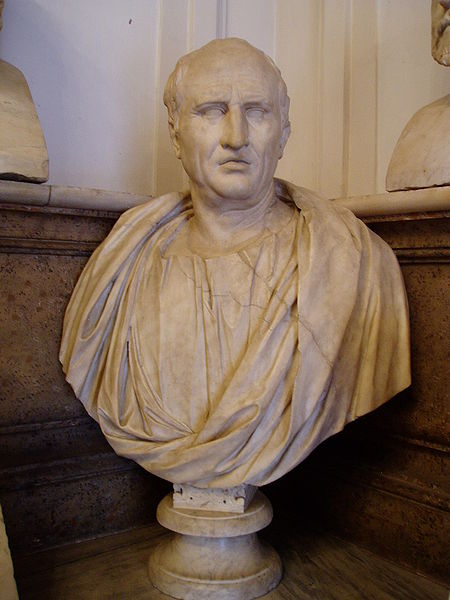It is a little known fact that I have a graduate degree in Latin and Classics. Yes – I spent the early part of my education in college studying these subjects and my first job was as a high school teacher, educating boys and girls in 6th -12th grade in Latin, and also in English. I loved teaching and that has been a constant theme throughout my life.
So when someone sent me the following, reminding me of the words of Cicero – the amazing philosopher, teacher, orator and seer, I thought you would enjoy it. It is amazing that the human condition has not changed – nor have we learned from history. Perhaps you would agree with me, then, that every child ( and all members of congress, the executive branch and the judiciary as well as state legislators and local politicians) should read and learn this lesson:
“The budget should be balanced.
The Treasury should be refilled.
Public debt should be reduced.
The arrogance of officialdom should be tempered and controlled.
The assistance to foreign lands should be curtailed lest Rome becomes bankrupt.
People must again learn to work, instead of living on public assistance.”
Wikipedia summarizes Cicero’s background as follows:
Marcus Tullius Cicero (![]() /ˈsɪsɨroʊ/; Classical Latin: [ˈkɪkɛroː]; January 3, 106 BC – December 7, 43 BC; sometimes anglicized as Tully[1]) was a Roman philosopher, statesman, lawyer, orator, political theorist, Roman consul and constitutionalist. He is widely considered one of Rome’s greatest orators and prose stylists.[2][3]
/ˈsɪsɨroʊ/; Classical Latin: [ˈkɪkɛroː]; January 3, 106 BC – December 7, 43 BC; sometimes anglicized as Tully[1]) was a Roman philosopher, statesman, lawyer, orator, political theorist, Roman consul and constitutionalist. He is widely considered one of Rome’s greatest orators and prose stylists.[2][3]
He introduced the Romans to the chief schools of Greek philosophy and created a Latin philosophical vocabulary (with neologisms such as humanitas, qualitas, quantitas, and essentia)[4] distinguishing himself as a linguist, translator, and philosopher.
Petrarch‘s rediscovery of Cicero’s letters is often credited for initiating the 14th-century Renaissance.[5] According to Polish historian Tadeusz Zieliński, “Renaissance was above all things a revival of Cicero, and only after him and through him of the rest of Classical antiquity.”[6] The peak of Cicero’s authority and prestige came during the eighteenth-century Enlightenment,[7] and his impact on leading Enlightenment thinkers such as John Locke, David Hume, and Montesquieu was substantial.[8] His works rank among the most influential in European culture, and today still constitute one of the most important bodies of primary material for the writing and revision of Roman history, especially the last days of the Roman Republic.[9]






